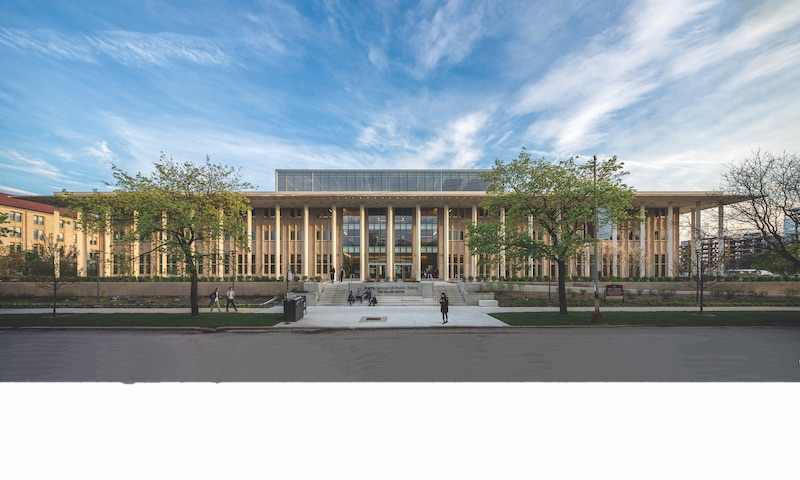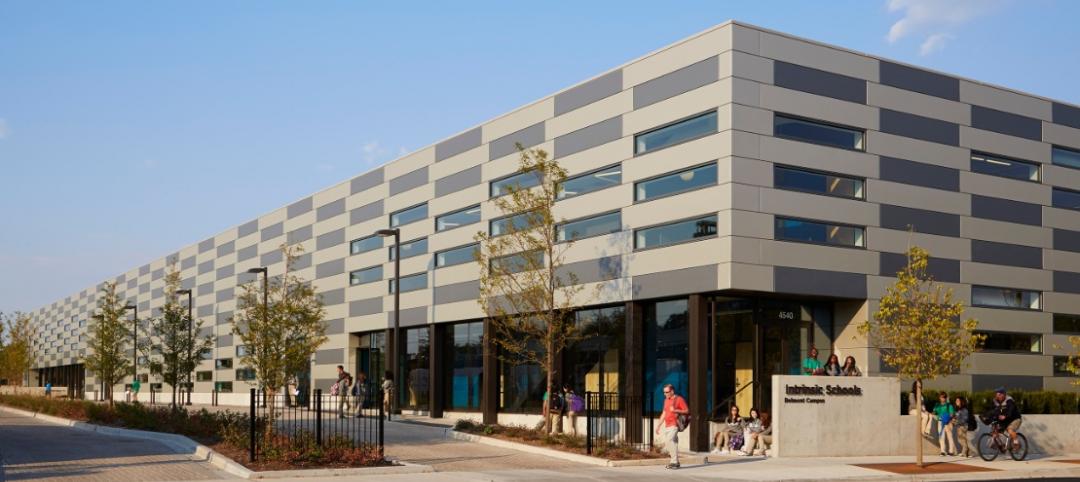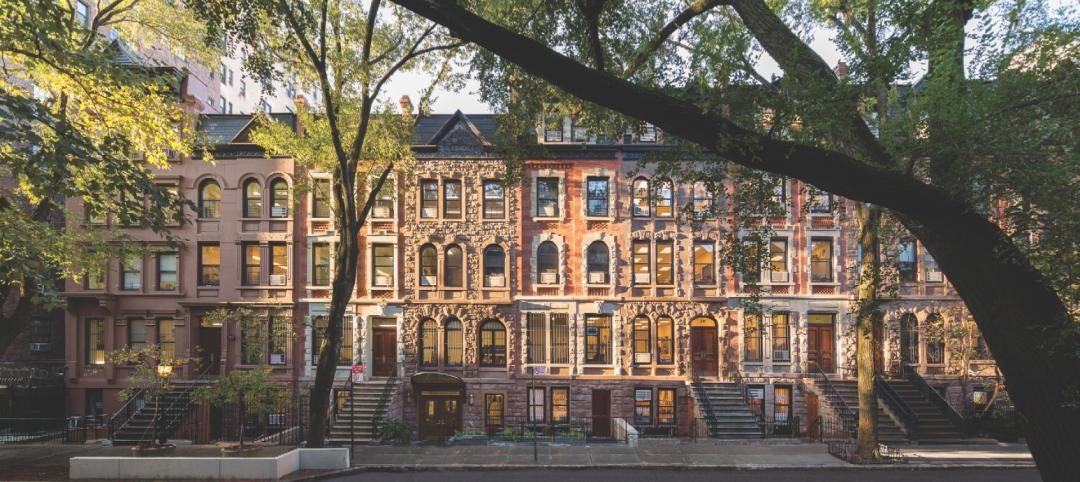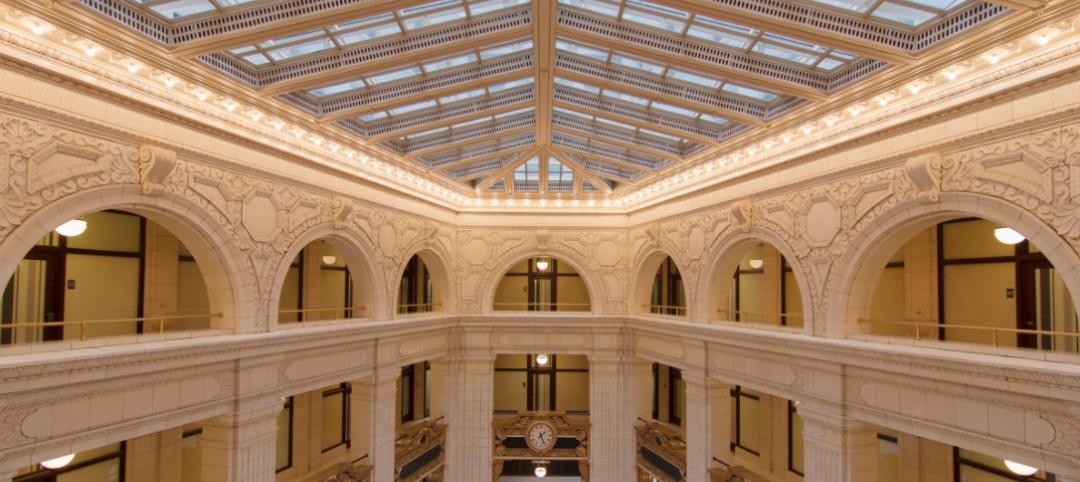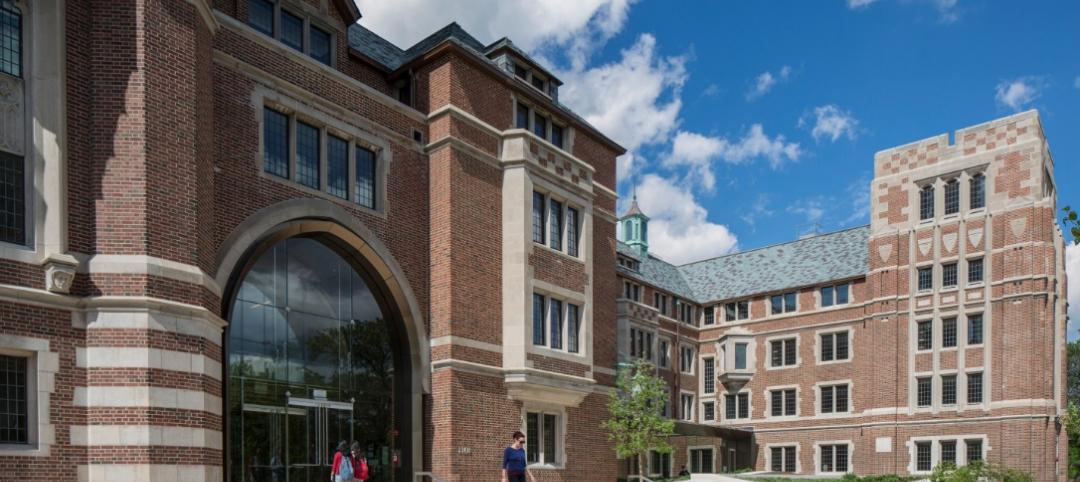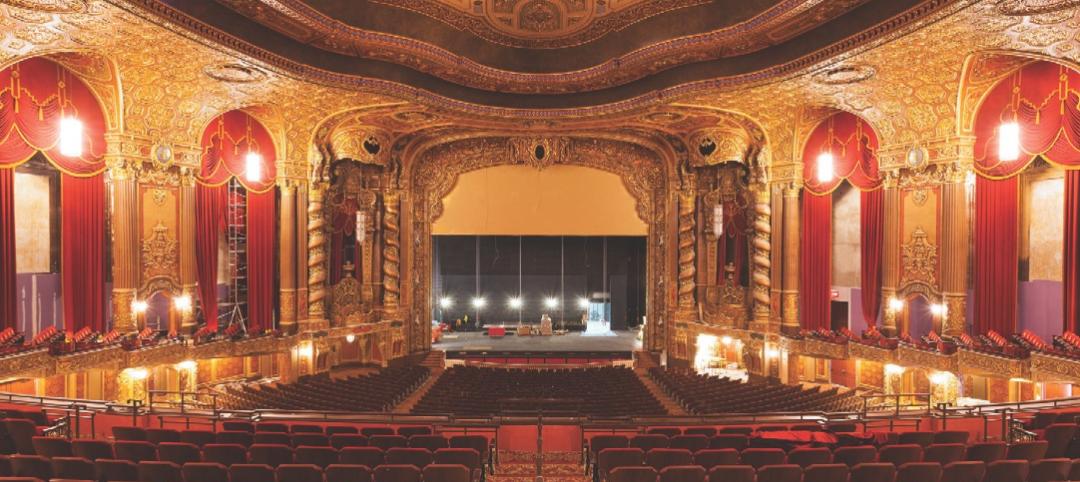Extreme sustainability was the chief goal for the reconstruction of Edward Durrell Stone’s Kellogg Center for Continuing Education at the University of Chicago.
Mortenson (CM) and Farr Associates (architect) put Stone’s New Formalism structure, built in 1963, on track to be the healthiest building in the Chicago area—the first LEED Platinum on the Maroons’ campus, and only the third project in the city to seek Petal certification (materials, equity, beauty) from the Living Building Challenge.
To meet the LBC’s “red list” requirements, all materials used by trade partners had to be vetted for banned chemicals. The carbon footprint of laborers and trade partners was tracked to reduce greenhouse gas emissions.
En route to achieving those standards, Mortenson and its CM partner, minority-owned contractor Ardmore Roderick, exceeded the university’s social hiring goals: 59% MWBE participation (vs. a goal of 30%) and an amazing 81% minority labor participation (vs. a 40% goal).
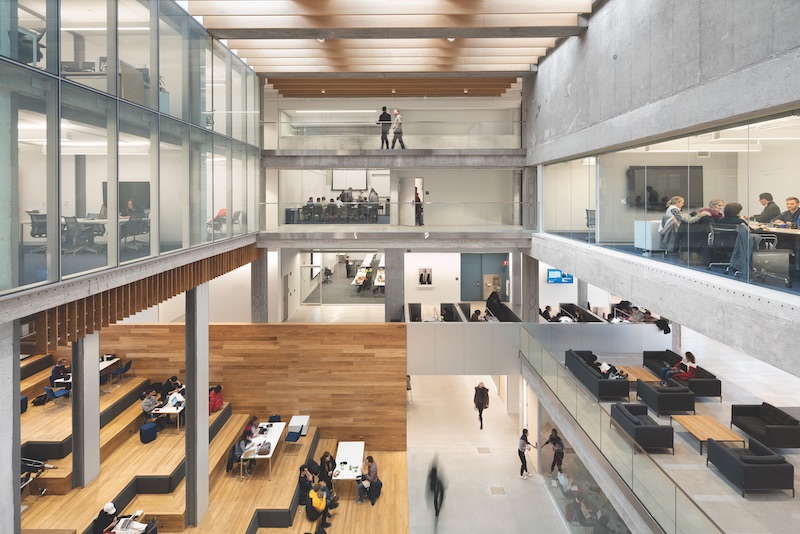 The wood for the Harris Family Forum was recycled from trees felled by the emerald ash borer. The Keller Center was originally built in 1963.
The wood for the Harris Family Forum was recycled from trees felled by the emerald ash borer. The Keller Center was originally built in 1963.
The CM team used Lean strategies (Last Planner, 5S) to streamline workflow and improve safety. The project had a total recordable incident rate of 0.71, compared to the industry standard of 3.20. MEP subcontractors were brought on early to provide design-assist expertise.
Farr Associates designed the 150,000 kWh/year rooftop PV system, which supplies 11% of the building’s energy, so that the 354 panels could be relocated in the event of future expansion of the Harris School of Public Policy.
The project team won a variance from the city to reduce the required size of the building’s green roof by installing a 15,000-gallon cistern, which stores rainwater for reuse in landscaping and toilet flushing, diverting 525,000 gallons of fresh water from the sewer system.
Three light courts were carved into the concrete structure to provide a balance of daylight between the borrowed light of perimeter windows across the deep floor plates.
SILVER AWARD WINNER
BUILDING TEAM Mortenson (submitting firm, CM) The University of Chicago (owner) Farr Associates (architect) Woodhouse Tinucci Architects (collaborating architect, interior designer) Stearn Joglekar, Ltd. (SE) dbHMS (MEP/FP) WJE (building forensics) Shen Milsom Wilke (acoustics/AV) WSP (LBC Red List consultant) site design group (landscape) Ardmore Roderick (CM partner) DETAILS 125,000 sf Total cost $60 million Construction time April 2017 to December 2018 Delivery method CM at risk
Related Stories
Reconstruction Awards | Nov 16, 2015
Lumberyard turned into Chicago charter school
While the existing structures were in poor condition, the Building Team preserved and restored 75% of the spaces and incorporated historic elements in the final design of the Intrinsic School on Chicago's Northwest side.
Reconstruction Awards | Nov 12, 2015
Columbia Grammar and Preparatory School grows with the times
The 251-year-old NYC school was a design-build project that overcame issues like tight space and zoning appeals during its redevelopment.
Reconstruction Awards | Nov 10, 2015
Restoration of the Whitney Building provides hope for Detroit
Four years ago, Whitney Partners purchased the 253,000-sf Whitney for $3.3 million. Their mission was to turn the 19-story structure into a mixed-use hotel, rental apartment, and retail center that would serve as a reminder of more prosperous times in Detroit’s past.
Reconstruction Awards | Nov 9, 2015
University of Chicago uses space economically with Saieh Hall
The five-story, 100,000-sf seminary was converted into a modern education facility that would be fully integrated into the university’s Hyde Park campus. The project demonstrated the university’s commitment to finding a balance between new construction and adaptive reuse of historically significant buildings.
Reconstruction Awards | Nov 9, 2015
King of kings: Classic brooklyn movie theater stages a return engagement
The theater, which withstood vacancy, neglect and vandalism, has been redeveloped with a goal: balance preservation with the creation of a modern performance space.


